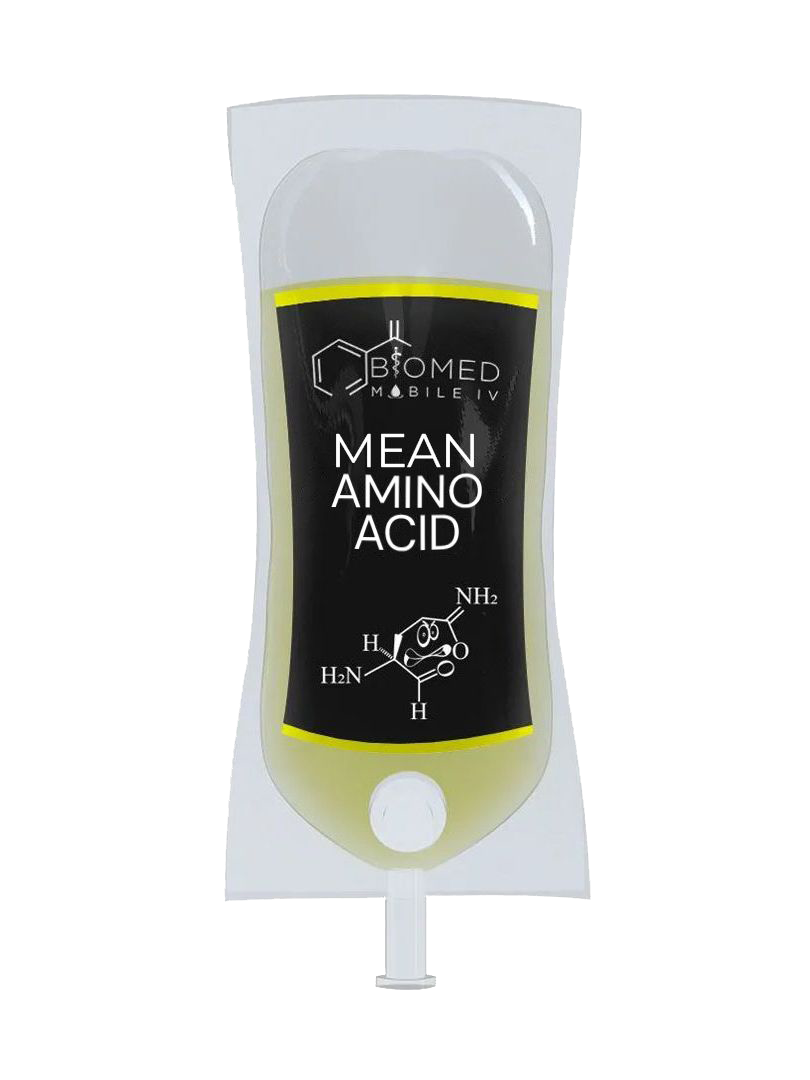Mean Amino Acid

Boosted Immunity
Immunity decreases when cellular functions fail or become compromised. The ingredients in the Mean Amino Acid IV enhance cellular function, making them more capable of fighting off infection.
Sharpened Memory
Low levels of Vitamin B12 and Vitamin C can create a brain fog that keeps you from remembering things & lowers concentration levels. Boost your vitamins with a Mean Amino Acid IV drip.
Heightened Energy Levels
BioMed’s Mean Amino Acid IV therapy rapidly boosts energy levels through the quick, intravenous delivery of vitamins to cells. B-complex vitamins and magnesium are especially potent in this regard as they contribute to cellular energy production.
Boosted Hydration
Our Mean Amino Acid IV therapy has a saline and electrolyte solution base that immediately boosts the body’s hydration levels. The solution delivers hydration straight to your cells quickly and efficiently, providing a fast recovery from dehydration.

